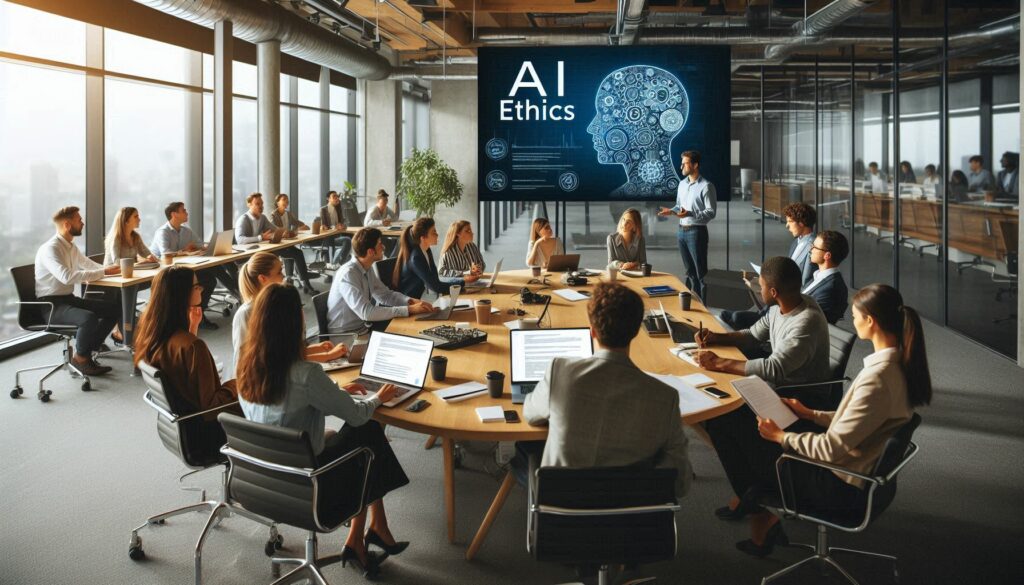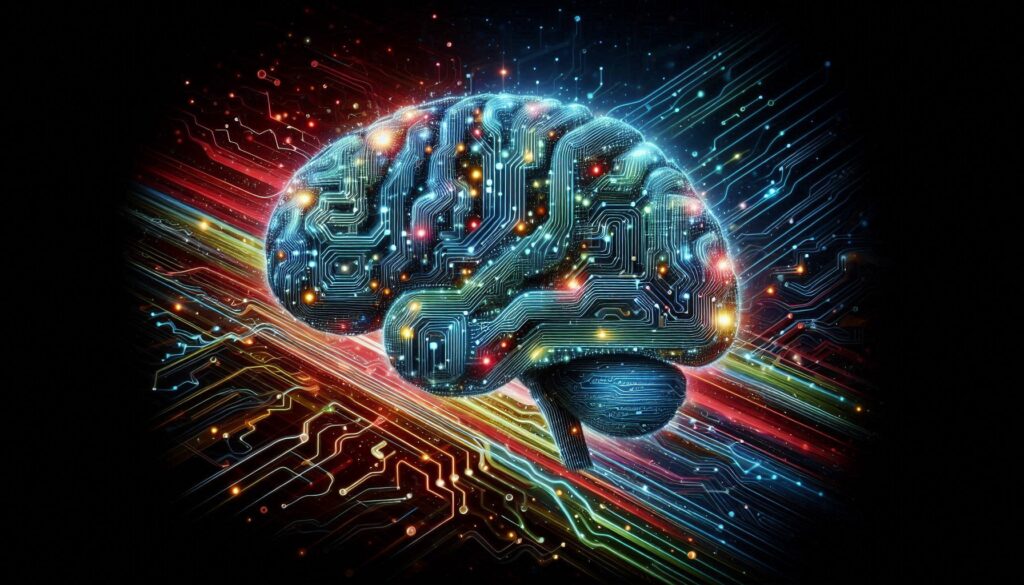

The Importance of AI in Human Resources
Artificial intelligence has transformed various industries, and HR is no exception. Traditional HR practices often involve manual processes, which can be time-consuming and prone to errors. AI technologies, such as machine learning algorithms and natural language processing, automate these tasks, enabling HR professionals to focus on more strategic initiatives.
Key Benefits of Enrolling in AI HR Course
- Enhanced Recruitment Processes: AI-powered recruitment tools can screen resumes, identify top candidates, and even conduct initial interviews. This not only saves time but also reduces bias in the hiring process.
- Improved Employee Engagement: AI systems can analyze employee feedback and engagement levels in real-time, providing insights that help organizations make informed decisions about workplace culture and employee satisfaction.
- Data-Driven Decision Making: With the power of predictive analytics, HR departments can make data-driven decisions regarding workforce planning, talent management, and succession planning.
- Streamlined Administrative Tasks: AI automates repetitive tasks such as payroll processing, benefits administration, and compliance reporting, freeing HR professionals to focus on strategic initiatives.
As organizations increasingly adopt AI technologies, the need for HR professionals who understand these tools and can leverage them effectively becomes paramount. This is where enrolling in an AI HR course can be transformative.
What to Expect from an AI HR Course
When you enroll in an AI HR course, you can expect a comprehensive curriculum that covers a range of topics essential for understanding the intersection of AI and HR. Here are some key components typically included in such courses:
1. Introduction to AI and Its Applications in HR
Courses often begin with a foundational overview of AI technologies, including machine learning, natural language processing, and data analytics. Understanding these concepts is crucial for HR professionals looking to implement AI-driven solutions.
2. Recruitment and Talent Acquisition
A significant focus of AI in HR is on recruitment. Courses delve into AI-powered recruitment tools, strategies for leveraging data in hiring, and best practices for creating inclusive and unbiased hiring processes.
3. Employee Engagement and Retention
Understanding how AI can enhance employee engagement is another critical aspect of these courses. Participants learn to use AI tools to gather feedback, analyze engagement data, and develop strategies to improve workplace satisfaction and retention.
4. Performance Management and Learning Analytics
AI can transform performance management by providing real-time feedback and personalized learning paths for employees. Courses cover how to utilize AI for performance assessments and employee development initiatives.
5. Legal and Ethical Considerations
As AI continues to reshape HR, understanding the legal and ethical implications becomes essential. Courses typically address topics such as data privacy, bias in AI algorithms, and the ethical use of AI in HR practices.
6. Hands-on experience with AI Tools
Many courses offer practical, hands-on experience with AI tools commonly used in HR. This experience is invaluable for applying theoretical knowledge to real-world scenarios.
Career Opportunities After Completing an AI HR Course
Completing an AI HR course opens up a wealth of career opportunities. As organizations seek to integrate AI into their HR functions, the demand for skilled professionals who understand both HR principles and AI technologies is skyrocketing. Here are some potential career paths for individuals who complete such courses:
1. AI HR Specialist
An AI HR Specialist focuses on implementing AI tools and technologies within HR departments. This role involves evaluating AI solutions, managing vendor relationships, and ensuring that AI systems align with organizational goals.
2. Recruitment Analyst
Recruitment Analysts leverage AI tools to enhance the hiring process. They analyze recruitment data, develop strategies for sourcing candidates, and utilize AI to improve the quality of hires.
3. HR Data Analyst
HR Data Analysts use data analytics to provide insights into workforce trends, employee engagement, and performance metrics. They play a critical role in helping organizations make informed HR decisions.
4. Learning and Development Manager
Learning and Development Managers design and implement training programs for employees. With AI training, they can create personalized learning paths and assess the effectiveness of training initiatives.
5. Employee Experience Consultant
Employee Experience Consultants focus on improving workplace culture and employee satisfaction. With AI tools at their disposal, they can gather and analyze feedback to develop actionable strategies.
Real-World Applications of AI in HR
As organizations around the globe adopt AI technologies, numerous success stories demonstrate the tangible benefits of these innovations in HR. Below are some examples of how companies have leveraged AI to transform their HR practices:
1. Unilever’s AI Recruitment Process
Unilever, a leading consumer goods company, has revolutionized its recruitment process using AI. The company employs an AI-powered tool that assesses candidates through gamified assessments and video interviews. This process not only streamlines hiring but also enhances diversity by minimizing bias.
2. IBM’s Watson Talent
IBM’s Watson Talent utilizes AI to analyze employee data and provide personalized recommendations for career development. This AI-driven approach has improved employee engagement and retention at IBM, highlighting the importance of AI in workforce management.
3. Pymetrics
Pymetrics uses AI-driven neuroscience games to assess candidates’ soft skills and cognitive abilities. By focusing on potential rather than traditional metrics, companies can identify candidates who align with their organizational culture, leading to better hiring outcomes.
Challenges of Integrating AI in HR
Despite the numerous benefits of AI in HR, organizations face challenges when integrating these technologies. Understanding these challenges is crucial for HR professionals looking to navigate the evolving landscape effectively.
1. Data Privacy Concerns
The use of Enroll in AI HR Courses often involves the collection and analysis of sensitive employee data. Organizations must ensure compliance with data privacy regulations, such as GDPR, to protect employee information and maintain trust.
2. Resistance to Change
Implementing AI in HR may encounter resistance from employees who are wary of technology replacing their roles. HR professionals must communicate the benefits of AI clearly and involve employees in the transition process.
3. Bias in AI Algorithms
AI algorithms can inadvertently perpetuate bias if not carefully designed. Organizations must actively work to eliminate bias in AI systems and ensure that hiring processes are fair and equitable.
The Future of AI in HR

The future of AI in HR is bright, with continued advancements in technology promising even more transformative changes. Here are some trends to watch in the coming years:
1. Increased Personalization
As AI technologies evolve, HR practices will become increasingly personalized. Organizations will leverage AI to tailor employee experiences, from onboarding to performance management, creating a more engaged workforce.
2. Enhanced Predictive Analytics
The use of predictive analytics will become more prevalent, enabling HR professionals to anticipate workforce trends, identify potential issues, and develop proactive solutions.
3. Integration of AI with Other Technologies
The integration of AI with other emerging technologies, such as blockchain and IoT, will further enhance HR practices. This synergy will lead to more secure, transparent, and efficient HR processes.
How to Choose the Right AI HR Course
With numerous AI HR courses available, selecting the right one can be daunting. Here are some factors to consider when making your decision:
1. Accreditation and Reputation
Look for courses offered by reputable institutions or organizations with a strong track record in HR and AI education. Accreditation ensures that the course meets industry standards and provides quality education.
2. Course Content and Curriculum
Review the course content to ensure it covers essential topics, such as AI applications in recruitment, employee engagement, and legal considerations. A well-rounded curriculum will provide you with the knowledge and skills needed to excel in the field.
3. Instructor Expertise
Investigate the qualifications and experience of the instructors. Courses taught by industry experts with practical experience in AI and HR will provide valuable insights and real-world examples.
4. Flexibility and Format
Consider the course format and schedule. Some courses offer online learning options, allowing you to study at your own pace, while others may be classroom-based with fixed schedules. Choose a format that fits your lifestyle and learning preferences.
5. Alumni Network and Support
Courses with strong alumni networks can provide valuable connections and resources as you enter the job market. Additionally, look for programs that offer ongoing support, such as career services or mentorship opportunities.
Top AI HR Courses to Enroll In
Here are the best AI HR courses for professionals looking to stay ahead:
1. AI in Human Resource Management – Coursera
This course focuses on how AI impacts talent acquisition, workforce analytics, and employee performance management. It is ideal for HR professionals looking for an entry point into AI technologies.
- Duration: 4 weeks
- Certification: Yes
- Level: Beginner
- Link: Enroll Now
2. AI+ HR Certification – AI CERTs
This AI+ HR Certification offered by AI CERTs equips learners with expertise in AI-powered recruitment, employee engagement tools, and talent analytics. It emphasizes real-world applications of AI technologies within HR frameworks.
- Duration: 8 weeks
- Certification: Yes
- Level: Intermediate
- Link: Enroll Now
3. AI-Powered Talent Acquisition – Udemy
This course focuses specifically on AI recruitment tools. It covers AI-based resume screening, predictive hiring models, and tools for bias mitigation.
- Duration: 6 hours
- Certification: Yes
- Level: Intermediate
- Link: Enroll Now
4. People Analytics and AI – edX
This advanced-level course provides insights into people analytics, predictive modeling, and AI-powered decision-making. Learners will understand how to apply AI to workforce management and employee retention.
- Duration: 12 weeks
- Certification: Yes
- Level: Advanced
- Link: Enroll Now
5. AI for HR Leadership – LinkedIn Learning
This course offers a strategic overview of AI-driven HR solutions. It helps learners develop the leadership skills necessary to implement AI tools across organizations.
- Duration: Self-paced
- Certification: Yes
- Level: Advanced
- Link: Enroll Now
Enroll in AI HR Course: Your Path to Success
In conclusion, enrolling in an AI HR course is a strategic move for professionals seeking to enhance their careers in human resources. As AI continues to reshape the workplace, those equipped with the knowledge and skills to leverage these technologies will be in high demand. By understanding the benefits, challenges, and real-world applications of AI in HR, you can position yourself as a valuable asset to any organization.
As the world of work evolves, so too must the professionals who navigate it. Don’t miss out on the opportunity to stay ahead of the curve enroll in an AI HR course today and take your career to new heights!

FAQ
1. What prerequisites do I need to enroll in an AI HR course?
Most AI HR courses do not have strict prerequisites, but a background in HR, business, or data analytics can be beneficial. Some courses may require basic knowledge of AI concepts.
2. How long does it take to complete an AI HR course?
Course duration varies depending on the program. Some online courses may be completed in a few weeks, while more comprehensive programs could take several months.
3. Are there any certifications offered after completing the course?
Many AI HR courses offer certification upon completion, which can enhance your resume and demonstrate your expertise in AI applications in HR.
4. Can I apply for jobs in HR after completing the course?
Yes, completing an AI HR course equips you with valuable skills that can enhance your employability in HR roles, particularly those focused on AI and data analytics.
5. How much do AI HR courses typically cost?
Costs for AI HR courses vary widely, ranging from a few hundred to several thousand dollars, depending on the institution and course length. It’s essential to consider your budget and the value of the course when making your decision.
For more information, explore our AI+ HR Certification here.






















